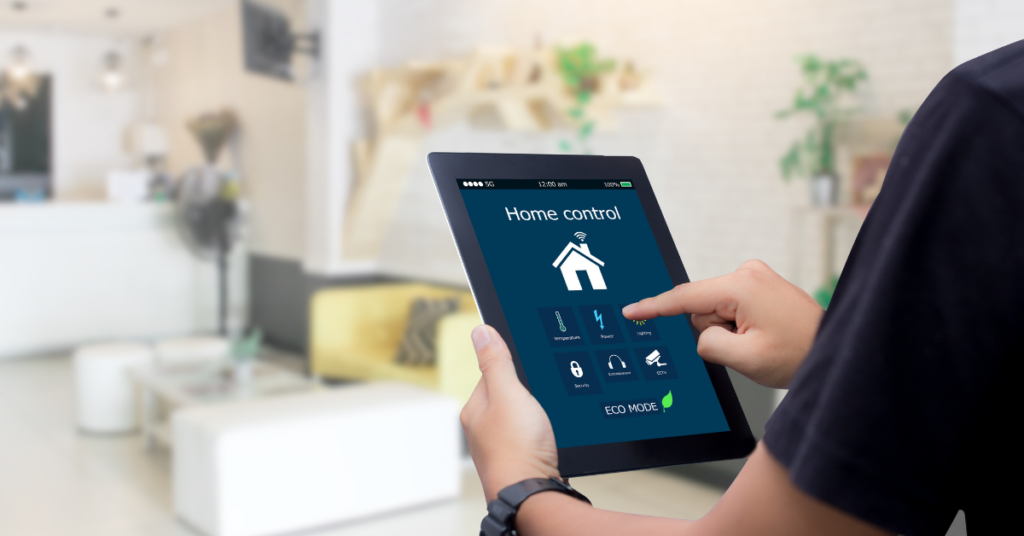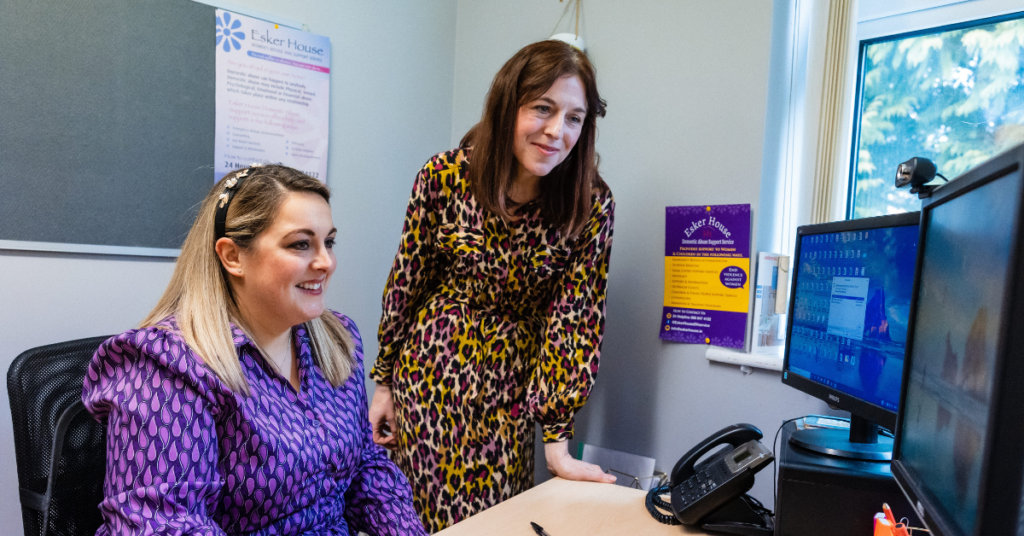2022 marks my 27th year working in Environmental Health and Safety (EHS), with the last seven spent working with SIRO. Over the years, I’ve completed qualifications to Masters levels and attained my Chartered practitioner status. Allied with practical experience, these have given me significant expertise on developing successful organisational environmental, health and safety management systems and practices.
SIRO began its journey in 2015, as a new company, a joint venture between ESB and Vodafone, rolling out a completely new 100% fibre broadband network. From the off, Environmental Health and Safety is something that we have placed a paramount importance on.
“SIRO is an Industry Leader on Environmental Health and Safety.”
SIRO is acutely aware that human interaction and organisations are dynamic and ever changing, diffusing between several layers of interaction and influence, all of which affect perceptions, meaning, values, attitudes, norms and thus behaviour; and that one unsafe behaviour can significantly change an organisations’ record.
Today, there is much talk within organisations and businesses about “culture.” Within occupational and environmental management, the importance of having a positive safety culture is much highlighted. Culture is the evolving result of the continuing negotiations about values between the members of that organisation and with its environment. It includes norms, ideas and factors which prompt behaviour and attitudes towards the organisation. Is culture the single determinant of all aspects of safety and the organisation of safety practices? Unfortunately, no. It is just one, but important, part of a wider paradigm of factors required to establish a successful management system. ISO standards, in particular ISO 45001 & ISO 14001, refer to this paradigm of factors as an organisation’s “context”. To develop successful systems, there is no singular, defining handbook, each organisation must determine their own, suited to their own context.
The Key Elements driving SIRO’s Environmental, Health &Safety (EHS) managements systems
Our Heritage
SIRO is a joint venture between ESB and Vodafone, with both companies having well established management systems. At SIRO, we took the best from both organisations’ approaches.
“We considered the complexity of utilising existing electricity infrastructure to construct & operate a 100% fibre-to-the-building broadband network, and successfully created management systems specific to SIRO”.
SIRO's Health & Safety Context
As an “essential service,” SIRO’s workplace is complex and the risks real. SIRO as a wholesale operator successfully completes and controls, high-risk works across a variety of networks - overhead, underground, Core, and Metro. This is in addition to navigating between a myriad of existing overlapping utility networks (e.g., gas, sewage,) in a congested urban underground landscape.
SIRO's Environmental Context
SIRO is rolling out one of Ireland’s greenest telecoms networks, with a strong focus on environmental sustainability. Through using the existing ESBN electricity infrastructure, we have adapted circular economy principles. Our fibre network is significantly more energy efficient and much less polluting vs. copper or cable broadband. SIROs fibre broadband network is already underpinning:
- A reduction in national carbon footprint due to working from home and reduced commuting
- More sustainable and balanced development, supporting people to live and work in their communities
- Contributing to improved work-life balance
- Reducing in pandemic risks through facilitating greater access to online goods and services
So, what are the main elements of SIRO’s successful EHSMS management systems?
These are broadly categorised as:
- Leadership & Participation
- Risk & Impact Assessment
- Setting & Enforcing High Control Standards
- Competence (Approvals & Authorisations)
- Integrating EHSMS within business management systems
Leadership & Participation:
- Having robust worker participation and organisational leadership is vital to the success of all aspects of a business, HSEQ is no different.
- SIRO’s HSEQ Department have direct line of authority from, and communication with the CEO and the SIRO Board.
- SIRO’s Senior Leadership & Management Teams are accountable and responsible for HSEQ within their functions.
- Worker participation is strong and there is a shared responsibility within SIRO from Leadership level throughout the whole organisation.
Risk & Impact Assessment:
- Planning and organisation are also vital: the need to identify hazards, environmental aspects, complete risk and impact assessment should form core elements of any activity. Through planning, SIRO has devised specific control measures and standards to reduce or eliminate risks and impacts posed.
Setting & Enforcing High Control Standards:
The setting and enforcing of high HSEQ standards is vital; aim as high as you can reach. Make it about the best available technology/approach and not the ‘cowboy’ corner-cutting approach. An organisation that aims for the legislative minimum will always find they fall short.
SIRO as an industry leader – sets and enforces high environmental, health and safety standards.
Competence:
From experience there are two key aspects to competence an organisation must get right, and both must align with the level of risk involved:
- Approval: The assessment and engagement of competent contractors
- Authorisations: The training, assessment and authorisation of worker activity based on levels of risk.
Integrating EHSMS within business management systems:
HSEQ is not an add on, it can never be if an organisation is to be an industry leader. HSEQ integrate into all aspects of thoughts, change, and actions across our business functions.
So, does SIRO have a positive “culture”?
I believe so. At SIRO we have put in place all the key elements to ensure a positive H&S culture exists, is prioritised and can continue to grow.
HSEQ is always evolving, and organisational paradigms are ever shifting in our dynamic work environment. Management systems must continually evolve and improve to respond to these dynamics.
 Multi-gigabit speeds can provide:
Multi-gigabit speeds can provide:
 Commenting on the launch of its 10 Gigabit-enabled network for Galway City, SIRO CEO John Keaney stated: “Galway has long been a city which embraces technology, quickly leveraging innovation to drive economic growth and job creation. This has positioned Galway to successfully attract significant foreign direct investment and for its start-up businesses to compete globally. SIRO also has innovation in its DNA. As Ireland’s first 100% fibre network, operating as a broadband wholesaler driving greater competition and choice, moving up a gear to roll-out multi-gigabit speeds up to 10 Gigabit for enterprise, just makes sense. Higher speeds, increased bandwidth and much lower latency meets a growing business demand. More importantly, for us it’s about developing and deploying world-class connectivity infrastructure to support enterprise needs for years to come.
“With speeds of up to 10 Gigabits, Galway enterprise level companies can develop and use products and services of the future, today. Access to this level of bandwidth will also give Galway city a unique competitive advantage in a global marketplace,” added Mr. Keaney.
Search your business eircode today to see if you can Do Business Different
Commenting on the launch of its 10 Gigabit-enabled network for Galway City, SIRO CEO John Keaney stated: “Galway has long been a city which embraces technology, quickly leveraging innovation to drive economic growth and job creation. This has positioned Galway to successfully attract significant foreign direct investment and for its start-up businesses to compete globally. SIRO also has innovation in its DNA. As Ireland’s first 100% fibre network, operating as a broadband wholesaler driving greater competition and choice, moving up a gear to roll-out multi-gigabit speeds up to 10 Gigabit for enterprise, just makes sense. Higher speeds, increased bandwidth and much lower latency meets a growing business demand. More importantly, for us it’s about developing and deploying world-class connectivity infrastructure to support enterprise needs for years to come.
“With speeds of up to 10 Gigabits, Galway enterprise level companies can develop and use products and services of the future, today. Access to this level of bandwidth will also give Galway city a unique competitive advantage in a global marketplace,” added Mr. Keaney.
Search your business eircode today to see if you can Do Business Different

 Enterprise Ireland is the State Agency responsible for supporting exporting Irish-owned companies. We support start-ups from initial ideation stage in many settings, whether entrepreneurship training, third level institutions, start-up hubs or others. We are also an investor in many Irish funds offering seed and venture capital to companies and are a large direct equity investor in our own right.
Our offer for established companies includes direct financial support and advice for expansion, investment, productivity improvement and innovation. We also provide advice and guidance for companies through dedicated Development Advisors on our team. Enterprise Ireland has 40 offices all around the world focused on market access and support for companies to grow and expand internationally
Enterprise Ireland is the State Agency responsible for supporting exporting Irish-owned companies. We support start-ups from initial ideation stage in many settings, whether entrepreneurship training, third level institutions, start-up hubs or others. We are also an investor in many Irish funds offering seed and venture capital to companies and are a large direct equity investor in our own right.
Our offer for established companies includes direct financial support and advice for expansion, investment, productivity improvement and innovation. We also provide advice and guidance for companies through dedicated Development Advisors on our team. Enterprise Ireland has 40 offices all around the world focused on market access and support for companies to grow and expand internationally

 The research also revealed the widespread adoption of smart devices in Irish households. Almost seven out of ten (67%) consumers own a Smart TV; with just under half (49%) of households in possession of a virtual assistant technology like Alexa; a third of the public using smart home technology like digital heating controls and lighting; and a quarter using security devices like video doorbells.
Noting the research findings, SIRO Head of Operations and New Developments Cian O’Mahony said, “At SIRO, through our work with developers to bring our
The research also revealed the widespread adoption of smart devices in Irish households. Almost seven out of ten (67%) consumers own a Smart TV; with just under half (49%) of households in possession of a virtual assistant technology like Alexa; a third of the public using smart home technology like digital heating controls and lighting; and a quarter using security devices like video doorbells.
Noting the research findings, SIRO Head of Operations and New Developments Cian O’Mahony said, “At SIRO, through our work with developers to bring our  Pictured left to right: Deirdre Berry, Esker House Manager and Amanda Glancy, SIRO Director of Corporate Affairs
Pictured left to right: Deirdre Berry, Esker House Manager and Amanda Glancy, SIRO Director of Corporate Affairs Pictured left to right: Steven Farrell, SIRO Account Director and Linda Tiley, Esker House Team Lead and Deirdre Berry, Esker House Manager
Pictured left to right: Steven Farrell, SIRO Account Director and Linda Tiley, Esker House Team Lead and Deirdre Berry, Esker House Manager Lorna Conn joined Cpl plc in October 2017 as Chief Financial Officer and was appointed Deputy CEO in April 2021 and CEO in January 2022. Lorna has previously held senior roles in a number of public companies, residing in both Ireland and America during this time. Lorna is a Chartered Director and placed first in Ireland in her Diploma examination. Lorna is a qualified Chartered Accountant and a Fellow of Chartered Accountants Ireland, having trained with Deloitte. Lorna graduated with first class honours in both the Bachelor of Commerce degree in University College Dublin and the master’s in accounting in the Michael Smurfit Business School. Lorna is passionate about Ireland, as a location to live and to do business in.
Lorna Conn joined Cpl plc in October 2017 as Chief Financial Officer and was appointed Deputy CEO in April 2021 and CEO in January 2022. Lorna has previously held senior roles in a number of public companies, residing in both Ireland and America during this time. Lorna is a Chartered Director and placed first in Ireland in her Diploma examination. Lorna is a qualified Chartered Accountant and a Fellow of Chartered Accountants Ireland, having trained with Deloitte. Lorna graduated with first class honours in both the Bachelor of Commerce degree in University College Dublin and the master’s in accounting in the Michael Smurfit Business School. Lorna is passionate about Ireland, as a location to live and to do business in.
 Traditionally our image of the future involved flying cars, robots, and holograms at the touch of a button. Today, we have self-driving cars, robots that have autonomy, and billionaires going to space. Much of how the future was envisioned is beginning to come to pass, it is here, and we’re living in it. Right now, the tech industry is experiencing a massive shift in priorities. Web2 or social media as we know it today is migrating towards the “Metaverse”, an augmented reality focused on creating a space where people can experience the internet with their full senses.
In October 2021, Facebook CEO Mark Zuckerberg made a keynote speech announcing that the company would be changing its’ name to Meta, while also announcing their vision for the next stage of social media and the internet as we know it. As the name suggests Zuckerberg was moving his company away from its current work of building a set of connected social apps to pivoting to “Web3” better known as The Metaverse.
Long gone are the days of dial-up broadband and modems screeching while loading a web page. Presently, we’re at the peak of Web2, which is defined by “websites that emphasise user-generated content, ease of use, participatory culture and interoperability for end users”. Social media websites such as TikTok, YouTube, Facebook and Reddit are clear examples of Web2 in action.
So what is the Metaverse? What does this mean for the future of connectivity and when will it become mainstream? The term was first coined in 1992 by sci-fi writer Neal Stephenson who used “the Metaverse” to describe a 3-D virtual-reality space.
Traditionally our image of the future involved flying cars, robots, and holograms at the touch of a button. Today, we have self-driving cars, robots that have autonomy, and billionaires going to space. Much of how the future was envisioned is beginning to come to pass, it is here, and we’re living in it. Right now, the tech industry is experiencing a massive shift in priorities. Web2 or social media as we know it today is migrating towards the “Metaverse”, an augmented reality focused on creating a space where people can experience the internet with their full senses.
In October 2021, Facebook CEO Mark Zuckerberg made a keynote speech announcing that the company would be changing its’ name to Meta, while also announcing their vision for the next stage of social media and the internet as we know it. As the name suggests Zuckerberg was moving his company away from its current work of building a set of connected social apps to pivoting to “Web3” better known as The Metaverse.
Long gone are the days of dial-up broadband and modems screeching while loading a web page. Presently, we’re at the peak of Web2, which is defined by “websites that emphasise user-generated content, ease of use, participatory culture and interoperability for end users”. Social media websites such as TikTok, YouTube, Facebook and Reddit are clear examples of Web2 in action.
So what is the Metaverse? What does this mean for the future of connectivity and when will it become mainstream? The term was first coined in 1992 by sci-fi writer Neal Stephenson who used “the Metaverse” to describe a 3-D virtual-reality space.
 So, what is required for an individual to try out the Metaverse right now? For starters, having the right connection is vital. Before you can consider the hardware required, you need to ensure your broadband can support your immersion into the Metaverse. In this case, fibre broadband is essential. While the Metaverse is still not a fully formed application, a fibre connection can future-proof your access. In 2021, SIRO announced Ireland’s fastest residential speed with
So, what is required for an individual to try out the Metaverse right now? For starters, having the right connection is vital. Before you can consider the hardware required, you need to ensure your broadband can support your immersion into the Metaverse. In this case, fibre broadband is essential. While the Metaverse is still not a fully formed application, a fibre connection can future-proof your access. In 2021, SIRO announced Ireland’s fastest residential speed with  Over the last two years, the way we’ve worked, lived, and played has shifted to greater adaptation of online living. In many ways, it has been a training ground for what the Metaverse aims to deliver: the future of connectivity.
At SIRO, we believe that connectivity matters. The Metaverse is just one iteration of what a fully connected future will bring and the fibre we lay today will power the connected lives of our customers and businesses for decades to come. Search Your Eircode today to see if your home or business is SIRO-ready.
Over the last two years, the way we’ve worked, lived, and played has shifted to greater adaptation of online living. In many ways, it has been a training ground for what the Metaverse aims to deliver: the future of connectivity.
At SIRO, we believe that connectivity matters. The Metaverse is just one iteration of what a fully connected future will bring and the fibre we lay today will power the connected lives of our customers and businesses for decades to come. Search Your Eircode today to see if your home or business is SIRO-ready.
